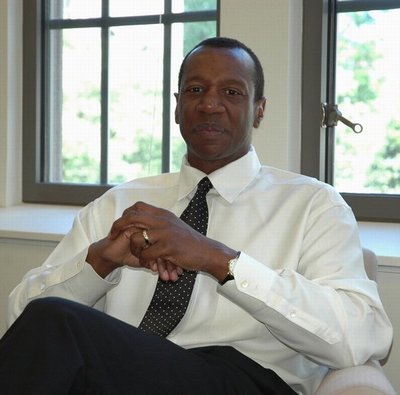January 14, 2010
Opinion: Martin Luther King Jr. was a student once; who could have guessed his future?
It has been more than 40 years since Martin Luther King delivered what many believe to be his own eulogy, his final sermon at the sanitation worker’s strike in Memphis.
It is hard to believe that King has now been dead longer than he lived. I am not sure what King means to university students anymore. Nonetheless, I am thinking today that once upon a time, King himself was a college student. Did his professors see his potential? More importantly, are we seeing the potential of our students? Are we fully appreciating the precipice of greatness on which this generation may also be poised?
I can only imagine what the faculty saw when they met a young Martin Luther King as he entered Morehouse College at age 15. Did they know what he would do when he graduated four years later at the mere age of 19? What did his doctoral supervisor think when he received his doctorate in Systematic Theology from Boston University in 1955? Did they know that same year he would join the Civil Rights Movement after Rosa Parks was arrested on Dec. 1? Or that by Dec. 5 he would be elected President of the Montgomery Improvement Association, making him the official spokesman for the boycott?
Could his advisers have known that in 1959 he would form the Southern Christian Leadership Conference to fight segregation? Could someone have predicted that King would speak to a crowd of 150,000 in Washington, D.C. or that same year he would travel to India to study Mohandas Gandhi’s philosophy of nonviolence?
In 1960, Martin became co-pastor with his father at the Ebenezer Baptist Church in Atlanta, Ga. But when lunch counter sit-ins began in Greensboro, NC, the police responded. In Atlanta, King was arrested during a sit-in waiting to be served at a restaurant. Could a classmate have predicted that he would be sentenced to four months in jail and released only after intervention by John and Robert Kennedy?
Someone must have envisioned that King would keep company with Ralph Abernathy and be arrested in 1963 by Police Commissioner Eugene “Bull” Connor for demonstrating without a permit. Would it have been me? Would you have guessed that on April 13 of that year the Birmingham campaign would be launched and this would prove to be the turning point in the war to end segregation in the South?
Someone must not have been surprised that during the 11 days he spent in jail, he would write his Letter from Birmingham jail and the result, that on May 10, the Birmingham agreement would be announced. Who would have known? An English teacher, perhaps? That stores, restaurants, and schools would be desegregated, the hiring of blacks implemented, and criminal charges dropped? Did anyone imagine that he would lead 125,000 people on a Freedom Walk in Detroit? The March on Washington on Aug. 28 was the largest civil rights demonstration in history with 250,000 people in attendance. At the march, King made his I Have a Dream speech. Was there a professor in the audience saying, “I taught him once, I knew he was special?”
In King’s last speech, he posed a hypothetical question. If the Almighty had said, Martin, what age would you have liked to live in? King answered that he would have passed by the age of the Olympians, and the Roman Empire, even the era of Lincoln. He would have again chosen the challenges of his generation. Why? Because, for all the injustices going on, he saw the forces assembling for change. Something had to be done for justice. For unity. For freedom. That we would either go up together, or go down together. That is why he wasn’t fearing anything. He had been to the mountaintop.
When I see this generation of students across this great state of ours, I concur with King. For all the serious economic, ecologic, and environmental challenges we face, I wouldn’t choose another time to live in. Why? Because change is coming. Something has to be done about this planet. About corporate greed. About health care. About food and water safety. And it will be, I am confident to report, the best and brightest of our own students who will bring this change. I see it every day — they care, about each other, about us. Because of them, we will go up together. To paraphrase Toni Morrison, the force of these students is unmistakable and mounting. Their voices bespeak civilizations gone and yet to be; the precipice from which their imaginations gaze will rivet us; they do not blink or turn away.
Look around. See, really see, the next student you come across. Can’t you tell?



